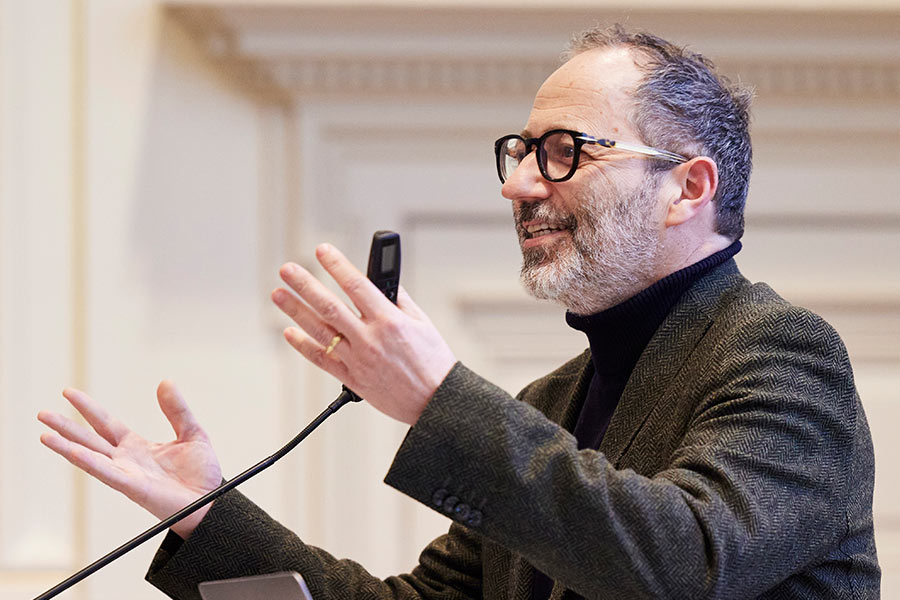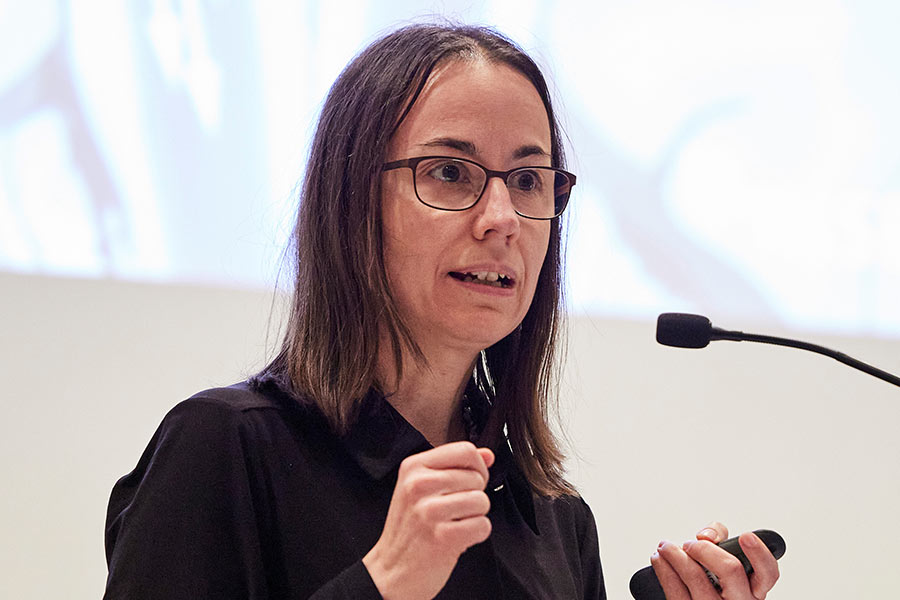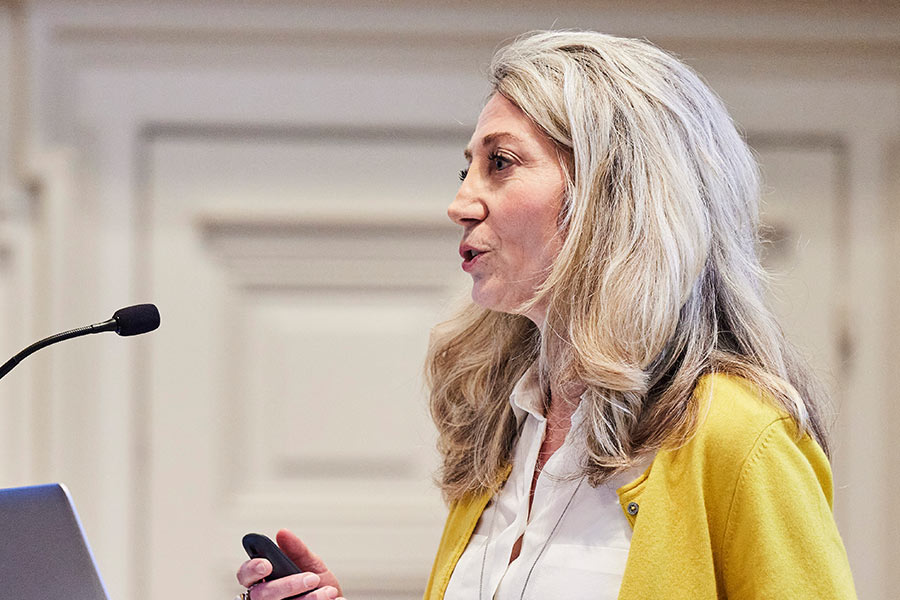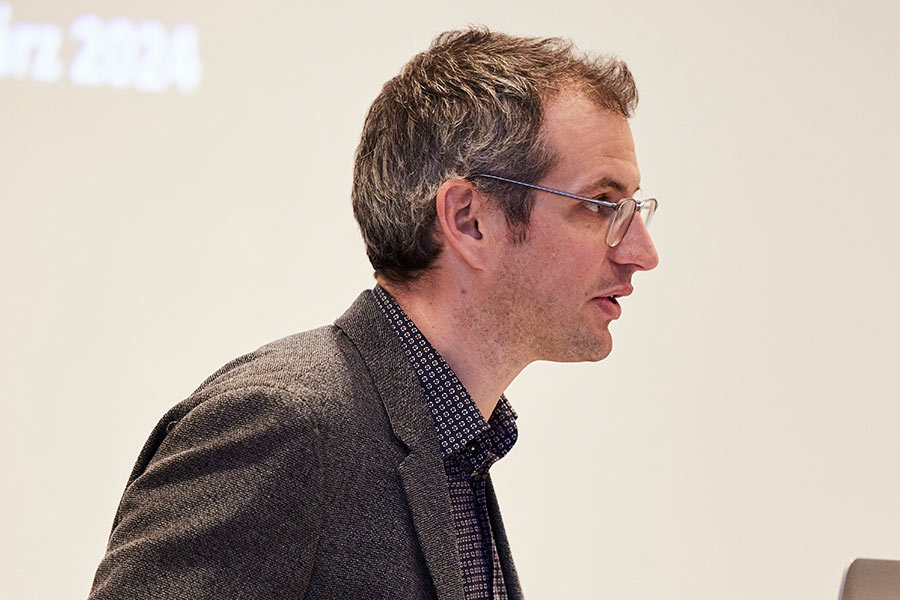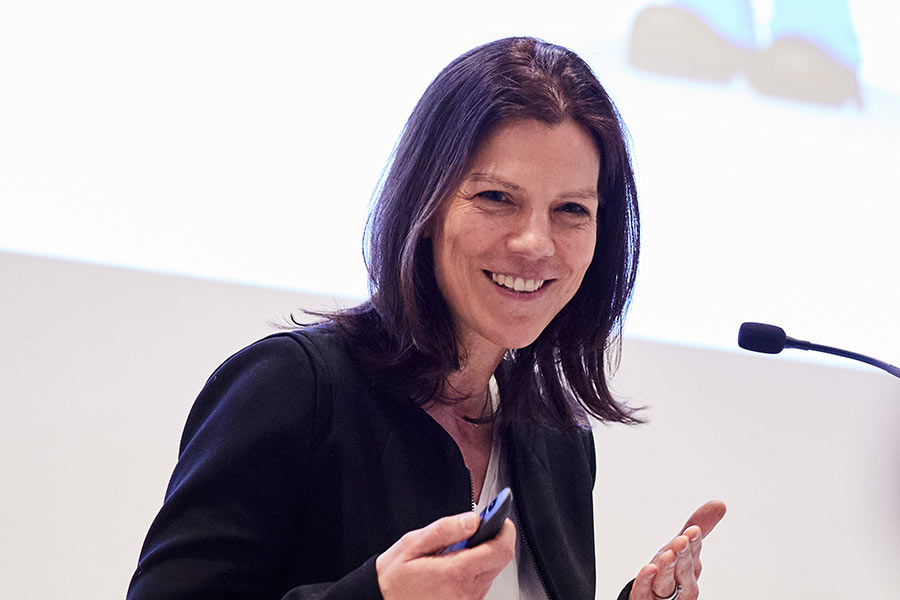At the end of Brain Week 2024, doctors of neurosurgery and neurology discussed provocative theses in the packed auditorium of the University of Bern and dispelled outdated opinions about various medical conditions such as epilepsy, Parkinson's or multiple sclerosis.
Brain Week 2024, University of Bern
The Brain Week is a series of events organized annually by the Clinical Neurosciences Bern (CNB). The topics, which revolve around the brain, psyche and health, are very popular with the public. The week concludes with an open evening panel discussion – this year on the topic «Myths and Truths».
Presentations and panel discussion
The individual lectures by the invited speakers were followed by a lively panel discussion moderated by Prof. Sebastian Walther, MD.
«We cannot see functions during brain surgery»
In her lecture, neurosurgeon Prof. Kathleen Seidel used innovative methods to make brain functions invisible to the human eye visible, thus showing that functions such as the speech or movement center can be seen by neurosurgeons during brain surgery.
«All multiple sclerosis sufferers end up in wheelchairs and become demented»
Prof. Iris-Katharina Penner from the Department of Neurology at Inselspital was able to convincingly refute why patients with multiple sclerosis do not inevitably end up in wheelchairs or develop dementia despite modern therapy.
«Epileptic seizures are random»
In his short lecture, Prof. Dr. Maxime Baud discussed the topic of epilepsy. After a brief historical review of epilepsy and its treatment, he explained why epileptic seizures do not occur randomly.
«The reality of impulse control disorders in Parkinson's disease»
Neurologist and Parkinson's specialist Ines Debove, MD, gave a talk on impulse control disorders in Parkinson's disease, vividly and entertainingly dispelling false ideas.
The expert group concluded by stating that a thorough education based on current research can dispel stigmas, myths and misconceptions surrounding neurological disorders.
Related News
- Brain Week 2025 – Panel discussion «Myth or Reality»17.03.25 - Brain Week Bern traditionally concludes with the popular panel discussion. In the well-attended auditorium of the University of Bern, there were…
- Is a robot a better surgeon?23.03.23 - Robotics has long since found its way into medicine. Robotic surgery is part of everyday surgical practice. But can humans be replaced entirely?
Related Links
- Doctor's profile Prof. Claudio PolloProfessor and Chief Physician, Head of Functional Neurosurgery
- Doctor's profile Prof. Kathleen SeidelProfessor and Senior Attending, Head of Intraoperative Neuromonitoring
- Professional profile Prof. Iris-Katharina PennerNeuropsychologist and Head of University Neuropsychology, Inselspital
- Doctor's profile Prof. Maxime Olivier BaudSenior Physician at the Sleep-Wake-Epilepsy Center, Inselspital, Bern University Hospital
- Doctor's profile Ines Debove, MDSpecialist in internal medicine, Deputy Head of the Center for Parkinson's and Movement Disorders

